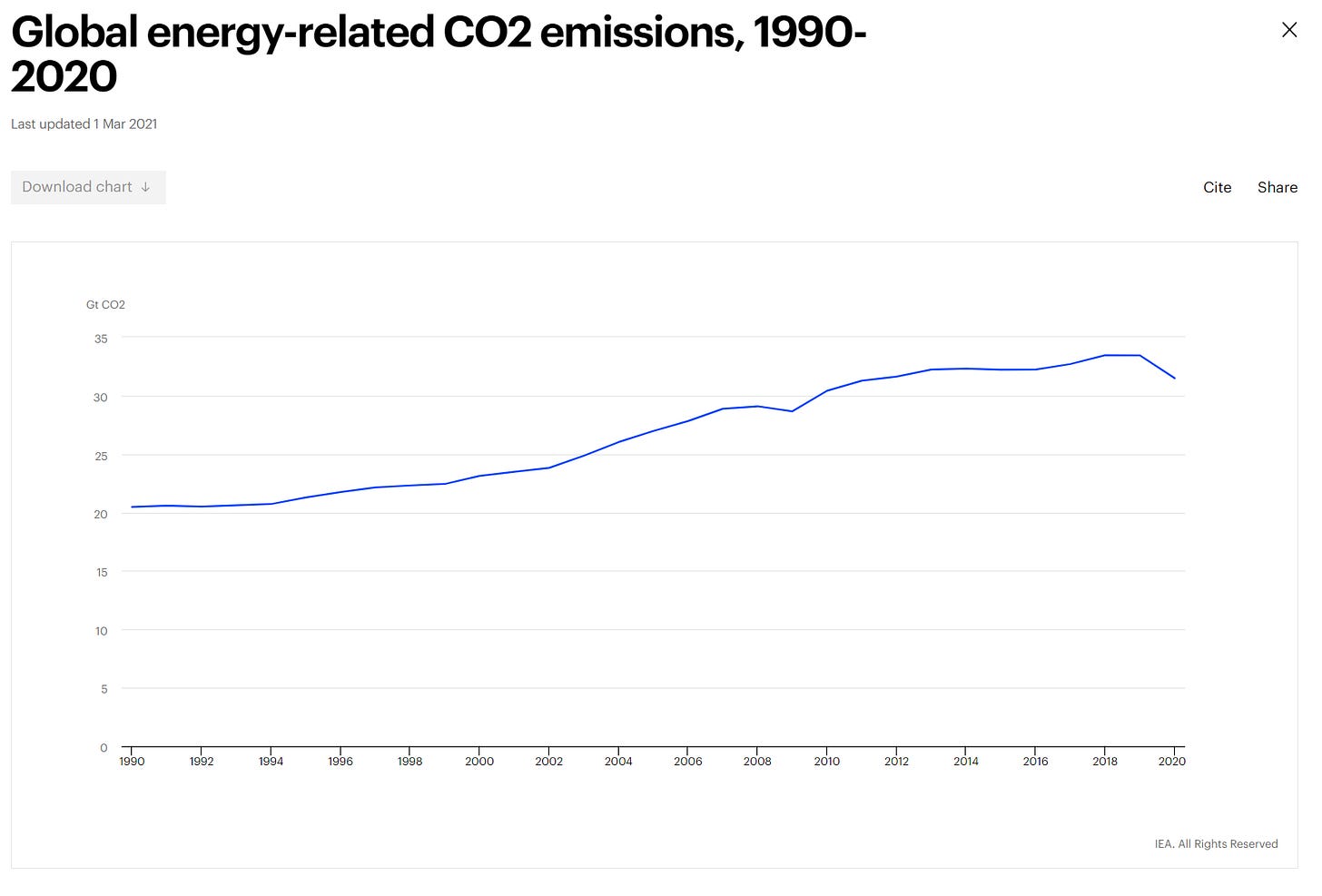2020: The Largest Reduction in Carbon Emissions Ever
Though, sustainable recoveries have been wanting
A recent press release from the International Energy Agency (IEA) articulates some of the key findings of the agency’s Global Energy Review for 2020:
The Covid-19 crisis in 2020 triggered the largest annual drop in global energy-related carbon dioxide emissions since the Second World War [and the largest absolute decline in history]… but the overall decline of about 6% masks wide variations depending on the region and the time of year.
The overall yearly decrease, which was mostly “due to lower use of oil for road transport and aviation,” is underscored by the return and increase in emissions towards the end of the year, specifically in December when monthly emissions were 2% higher than they were in December of 2019.
The returning increase in emissions spawned out of returning energy consumption lacking ambitious clean energy introductions to make such recoveries less carbon-intensive. Basically, a return to business as usual instead of using new renewables to account for the returning energy needs.
With many nations and companies announcing strong carbon-neutrality goals, this is a key moment to get on track to meet such goals. The need for a strong clean-recovery is emphasized even more by a recent IPCC report that highlights how the world is pretty far from being on track.
To achieve the best case scenario for climate change, keeping warming limited to 1.5°C above the 20th century global average, “global net anthropogenic CO2 emissions need to decline by about 45 per cent from the 2010 level by 2030…” With the recently updated national commitments accounted for by the report, total greenhouse gas emissions in 2030 are expected to be “0.5 per cent lower than in 2010.”
45% reduction is needed; 0.5% reduction is estimated. We can still keep warming below 2°C if we manage a 25% decrease in emissions by 2030, but that is still a 50x greater emissions decline than we are on track for. Another mitigating factor is that the US should release its new NDC sometime soon and an ambitious commitment from the Biden administration could help increase the forecasted reduction. Though, even with that boost and the more modest target of 2°C, we are still wildly missing the mark.
Transitions to cleaner energy sources have to happen now, while we are still recovering from and amid the pandemic, if we are to follow the path which our planet’s scientists are advocating. The short-term picture of emissions reductions is the easier one. Constructing and adding more renewables to our electricity grids will help significantly cut emissions. While the long-term road to a 100% reduction may be more obscured, current and new research is constantly illuminating more and more of it. For example, later this year on May 18th, the IEA will release “the world’s first comprehensive roadmap for the energy sector to reach net-zero emissions by 2050.” A detailed roadmap from a well-respected, international organization directly involved with the subject matter, energy, is quite the boon to look forward to, and there will surely be others like it.
Despite 2020 clocking in as the largest absolute decline in emissions ever, future progress in reductions is in peril unless each and every nation takes active, ambitious steps to make their economic recoveries transformative in regard to energy and emissions. That doesn’t mean we need to forestall economic rebounding, just that we need to infuse such recuperations with the cost-effective technologies that will ensure a safer, more climate-stable future for our planet and all the people who (will) call it home.



